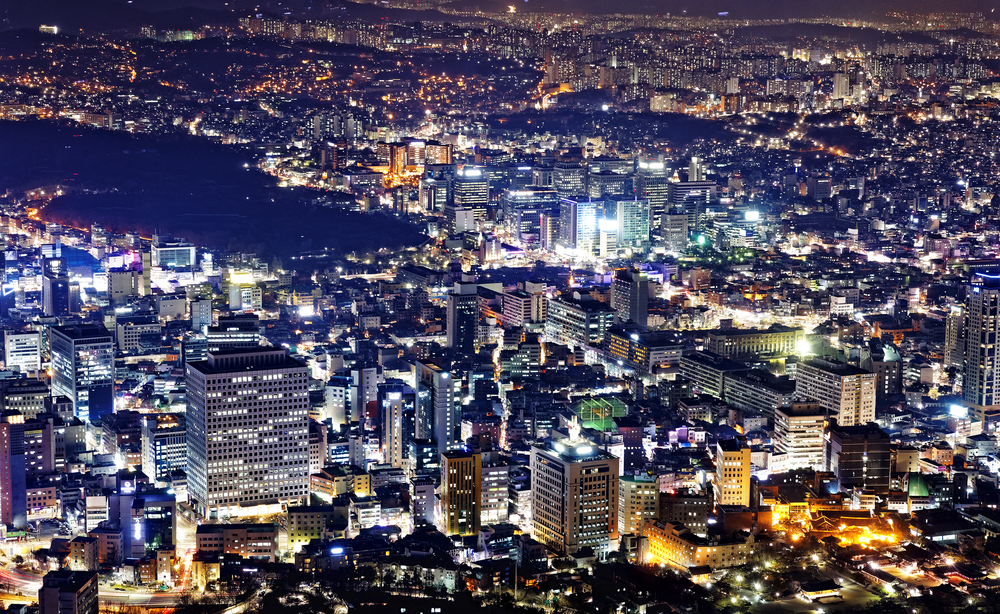South Korea’s Migration Policies Are In Need Of Reform

Please note that we are not authorised to provide any investment advice. The content on this page is for information purposes only.
North and South Korea are widely regarded to be ethnically homogenous societies. But with minority populations having grown in numbers and importance in both Koreas, demographic homogeneity has become a myth.
Yet the importance of ethnic nationalism as an underlying identity of the two states prevents a genuine transition to a multicultural society in both cases. In both Koreas, policies that disproportionately focus on reaping benefits from minorities, and a lack of public consensus on what constitutes multiculturalism, have led to human rights violations and social conflict.
North and South Korea are widely regarded to be ethnically homogenous societies. But with minority populations having grown in numbers and importance in both Koreas, demographic homogeneity has become a myth.
Yet the importance of ethnic nationalism as an underlying identity of the two states prevents a genuine transition to a multicultural society in both cases. In both Koreas, policies that disproportionately focus on reaping benefits from minorities, and a lack of public consensus on what constitutes multiculturalism, have led to human rights violations and social conflict.
The ideal of creating a modern nation-state for the Korean people underpinned the founding of both North and South Korea. But the nation-building process also produced minorities. In South Korea, discrimination on the basis of regional origin increased under the authoritarian regimes led by Park Chung Hee and Chun Doo Hwan
and continues in public discussions today. In North Korea, the social stratification (songbun) system divides the population into three major categories, and 51 subcategories, on the basis of how one’s grandparents participated in the emerging state’s anti-colonial communist revolution.
The most important minority group in South Korea today is ethnic Korean Chinese. Increasing numbers of
ethnic Korean Chinese have migrated to South Korea under the diaspora (dongpo) policy, which loosened entry and residency regulations. Today, the ethnic Korean Chinese population in South Korea reaches 500,000 — 39 percent of the total foreign nationality population. Despite sharing the same language and working in sectors where there is the most need, ethnic Korean Chinese continue to face prejudice and discrimination from broader South Korean society.
South Korea’s migration policy
is designed to satisfy small- and medium-size businesses’ demand for cheap labour. This policy focus means the rights of migrant workers have not been protected effectively. Under the Employment Permit System, adopted in 2004, migrant workers continue to experience abuse and exploitation. They face restrictions when changing workplace and are prohibited from forming or joining labour unions. A 2014 Amnesty International report detailed abuses of migrant workers in the farm and fishery sectors and recommended that the government allow workers greater freedom to change workplace and enforce work condition standards across all sectors.
Marriage migrants also face problems. In rural areas, the majority of marriages — 236,000 in total — are between a Korean man and a foreign bride. Cultural differences in this male-dominated family setting can create major difficulties, and family discord and domestic violence are common. One counselling centre received 5000 requests for divorce counselling in 2014. In that same year, 69 percent of immigrant wives suffered abuse. Seven of these women were murdered by their partners.
Civic, religious and feminist groups run shelters for immigrant women facing divorce proceedings, who risk having their residency revoked. There are 100 multicultural support centres nationwide that run incipient conflict resolution mechanisms and seek to represent the interests of immigrant wives. Jasmin Lee, a naturalised Filipino-Korean elected in 2012, is the first advocate for immigrant wives in the National Assembly. 
Lee faced racially-charged attacks, demonstrating a general insensitivity to multiculturalism in South Korea.
Another minority group in South Korea is made up of North Korean defectors, who number now only 27,500 — a miniscule number compared to other minorities. Like other minorities, these defectors face prejudice and difficulties in adjusting to their new home country. Conflicts involving North Korean defectors have been politically charged: either silencing their voice if it is inconvenient for the government’s unification policy or mobilising it
to strengthen an anti-North Korean stance.
Defectors are subject to another danger: accusations that they are spies. This danger was recently highlighted in the case of Yoo Woo-sung, a defector and former employee of the mayor of Seoul’s office. Yoo was acquitted for espionage after the National Intelligence Service was found to have forged evidence.
In North Korea, Korean expatriates returning from Japan and China have a distinctive place in society. Repatriates from Japan and China offered technical expertise and skilled labour during the post-war reconstruction period. The North Korean government benefited from the currency transactions and in return permitted them a greater level of economic freedom.
But, at the same time, repatriates and their children have also faced systematic discrimination in pursuing political careers as party cadres and security officials. Since the 1990s, repatriates who have relatives outside North Korea have had a greater advantage in conducting trade and in even attempting defection.
Policies for handling minorities
in the two Koreas demonstrate an absence of a clear long-term vision. There is no public consensus on how, and even if, either Korea should transform from an ethnic nation to a multicultural one.
Despite the prevalent use of the term multiculturalism in South Korea, there is little public discussion or shared understanding as to what it is. Incoherent policies designed to yield benefits from minority groups and assimilate them into broader society continue to produce human rights violations and social conflicts. Unless a coherent approach to multiculturalism is developed, similar outcomes may well be reproduced in a possible future reunification process.
How ethnic nationalism undercuts multiculturalism on the Korean peninsula is republished with permission from East Asia Forum




